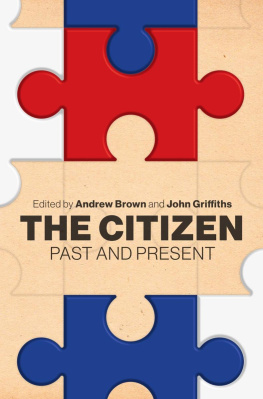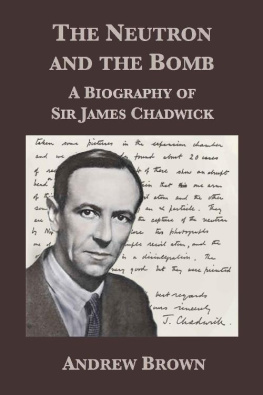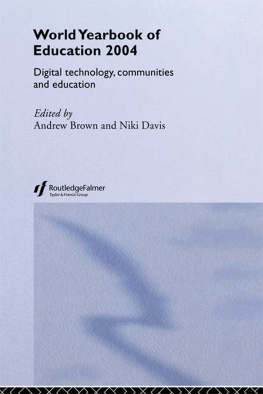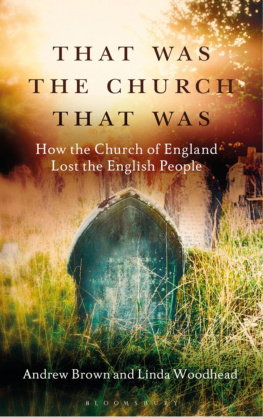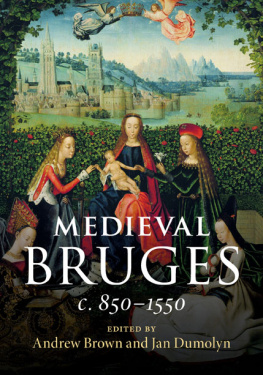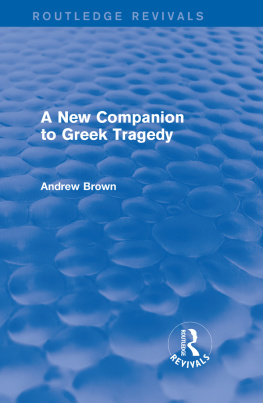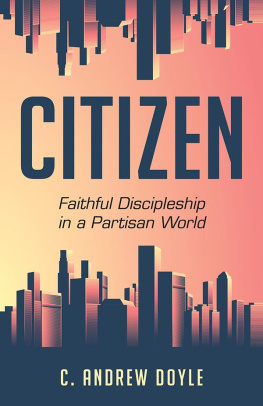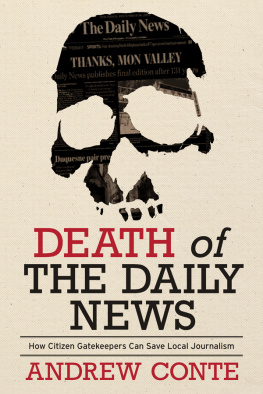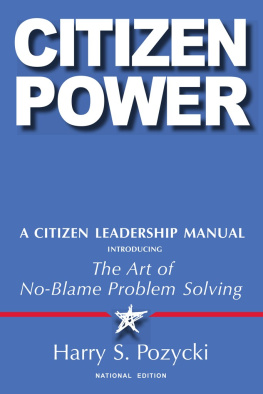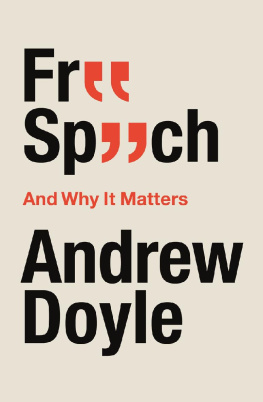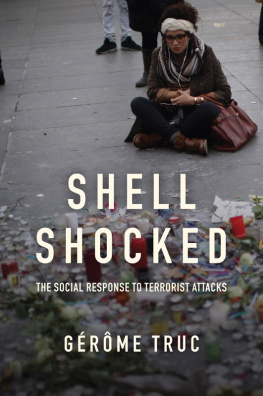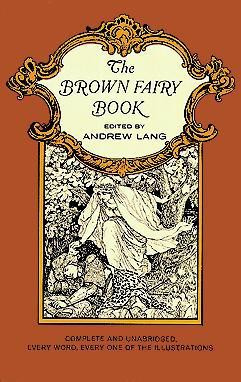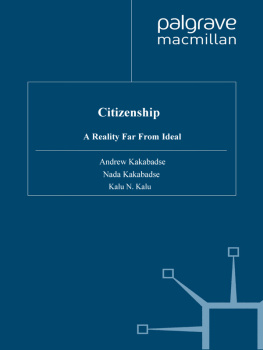Andrew Brown - Citizen.
Here you can read online Andrew Brown - Citizen. full text of the book (entire story) in english for free. Download pdf and epub, get meaning, cover and reviews about this ebook. year: 2017, publisher: Massey University Press, genre: Politics. Description of the work, (preface) as well as reviews are available. Best literature library LitArk.com created for fans of good reading and offers a wide selection of genres:
Romance novel
Science fiction
Adventure
Detective
Science
History
Home and family
Prose
Art
Politics
Computer
Non-fiction
Religion
Business
Children
Humor
Choose a favorite category and find really read worthwhile books. Enjoy immersion in the world of imagination, feel the emotions of the characters or learn something new for yourself, make an fascinating discovery.
- Book:Citizen.
- Author:
- Publisher:Massey University Press
- Genre:
- Year:2017
- Rating:5 / 5
- Favourites:Add to favourites
- Your mark:
- 100
- 1
- 2
- 3
- 4
- 5
Citizen.: summary, description and annotation
We offer to read an annotation, description, summary or preface (depends on what the author of the book "Citizen." wrote himself). If you haven't found the necessary information about the book — write in the comments, we will try to find it.
Citizen. — read online for free the complete book (whole text) full work
Below is the text of the book, divided by pages. System saving the place of the last page read, allows you to conveniently read the book "Citizen." online for free, without having to search again every time where you left off. Put a bookmark, and you can go to the page where you finished reading at any time.
Font size:
Interval:
Bookmark:
In an era where tyranny and the threats to democracy are on the rise, and where globalisation and migration have destabilised nations and states, the place of the citizen has never been more important. The meaning of modern citizenship, whether defined in a legal, political or social sense, is varied, problematic and contested; and it has been shaped inescapably by the legacy of the past, within New Zealand and beyond.
From ancient Greece to New Zealand today, this collection of essays asks: Who is The Citizen? What are his rights? And what are her duties?
- INTRODUCTION THE CITIZEN: FROM ANCIENT TO POST-MODERN
Andrew Brown - TWENTY-FIRST-CENTURY CITIZENSHIP: CRITICAL, GLOBAL, ACTIVE
Emily Beausoleil - CITIZENS & SERPENTS IN CLASSICAL ATHENS
Daniel Ogden - THE PEOPLE & THE STATE IN EARLY ROME
James H. Richardson - MEDIEVAL CITIZENSHIP: BRUGES IN THE LATER MIDDLE AGES
Andrew Brown - JEWS & CHRISTIANS AS SECOND-CLASS CITIZENS IN ISLAMIC EGYPT
Christopher J. van der Krogt - CITIZENSHIP, COMMUNITY & DISEASE IN AN EARLY MODERN CITY
Karen Jillings - PERSONAL, LOCAL & ENDURING: MASCULINE CITIZENSHIP IN FIRST WORLD WAR BRITAIN
David Littlewood - ALL THE RIGHTS & PRIVILEGES OF BRITISH SUBJECTS: MORI & CITIZENSHIP, TAKING THE LONG VIEW
Michael Belgrave - FROM CITIZENS TO DILETTANTES & BACK AGAIN? THE WORKERS EDUCATIONAL ASSOCIATION & ITS STUDENTS SINCE 1945
John Griffiths
Andrew Brown
W ho is the citizen? asked Aristotle; Whom should we call one? These questions are as pertinent today, and as difficult to answer, as they were when Aristotle posed them. We might define citizenship simply as a legal relationship between the individual and the state; as a balance between the duties owed to the state and rights expected from it; as a sense of belonging to the state, and the degree of participation within it. But a concept that relates in some way to rights and duties, as well as to status, identity and values, is a concept that will utterly defy consensus. What Aristotle also said over two millennia ago is just as true now: there is no unanimity, no agreement as to what constitutes a citizen.
Aristotles questions related to the Greek city-state, and are answered very differently within the modern democracy: citizenship has constantly evolved within the Western European tradition. We can identify several key shifts in definition as being particularly significant for the modern world, and roughly date their appearance to the eighteenth century. The most obvious is the shift from small to large scale, from an urban-based notion of citizenship to one focused on the nation-state. The novelty of this change can be overstated. The idea of a citizen as the subject of a state, and as a legal entity, had emerged within the Roman empire; states and nations arguably existed in the medieval West; and early modern theorists (such as Jean Bodin) had discussed citizens as subjects. But revolutionary Europe and America in the late eighteenth century did usher in a sense of citizenship as a more inclusive and potentially more democratic category.
A consequence of this shift was to turn the citizen, or at least the definition of one, from an active into a more passive being. Aristotle had considered citizenship meaning membership of a city-state (polis) to be natural, Most members of a modern nation-state cannot be full citizens in Aristotles sense. Not that urban-based citizenships ever involved the whole population: being a citizen in classical Athens or a medieval city was a privileged status, often restricted to elites. But large nation-states that submerge the individual into a general will, and demand loyalty to the state, weaken the correlation between citizenship and direct political participation.
A third trend has been the shift in emphasis towards citizenship as a matter of rights more than of duties. Benjamin Constant in 1819 was already distinguishing the liberties of the ancients from the liberties of the moderns: whereas the former had drawn their freedoms from collective participation in the common good, the latter were to expect liberties free from excessive state interference. A liberal conception of citizenship, emphasising civil liberties, is said to have superseded an older civic-republican tradition. A strong emphasis, inherited from the ancient world, on the obligations required of active citizens, and on the virtue of fulfilling them, was replaced by an emphasis on the civil rights that passive citizens could demand of their nation-state.
Again, the degree of change can be overemphasised: in the ancient or medieval world, rebels against ruling regimes frequently demanded liberties of various kinds; states in the nineteenth century hardly granted democratic freedoms to lower classes, minorities or women. Inequalities also gradually generated ideas that the rights expected from the state should be more than political and civil. T. H. Marshalls (1949) emphasis on the need to reconcile the inequity between social classes and the equality implied by citizenship added the notion of social rights to the lexicon of modern citizenship.
These broad shifts in ideas of citizenship, from urban to national, active to passive, and duties to rights, have never gone unchallenged, however. Some of the continuities between modern societies and earlier ones are worth highlighting. Urban-based citizenship, for all its ideals of community, was fundamentally an exclusive category; and during the transition to state-based
Some of these challenges and problems have become the focus of present-day debates on citizenship in the face of rapid social change, especially since the 1990s. Globalisation has further destabilised simple association between citizenship and the nation-state. But present-day acceleration of contacts and migrations between countries, and environmental concerns that affect the whole planet, have strengthened the need to develop a global kind of citizenship, and weakened a sense of belonging simply to a state.
Even so, effective legislation to deal with global issues seems achievable only if enacted at the level of the state: the nation-state remains a primary locus of citizenship, especially in the legal sense. More challenging to this primacy has been the rise of new forms of cultural politics, loosely labelled postmodern. increase in citizenship studies that began in the late twentieth century shows no sign of slackening today.
P resent-day concerns form the starting point for this volume. Emily Beausoleil () begins with the rights and liberties expected by twenty-first-century citizens in liberal democracies, but emphasises the tensions that lie at the heart of the relationship between the individual and the democratic state. How does the citizen, largely excluded from decision-making processes, participate in the political arena? A new, active kind of citizen may be demanded in the modern democratic world, one who confronts and is critical of accepted norms.
If citizenship studies are about taking on the political problems and injustices of the present, what account do we need to take of the past? Emphasising the global, active and critical places citizenship in a thoroughly modern context, as does defining citizenship as a social process through which individuals or groups might engage in claiming rights. The relevance of past forms of citizenship begins to seem tenuous. But there are important ways in which an historical perspective contributes to modern debates.
Font size:
Interval:
Bookmark:
Similar books «Citizen.»
Look at similar books to Citizen.. We have selected literature similar in name and meaning in the hope of providing readers with more options to find new, interesting, not yet read works.
Discussion, reviews of the book Citizen. and just readers' own opinions. Leave your comments, write what you think about the work, its meaning or the main characters. Specify what exactly you liked and what you didn't like, and why you think so.

